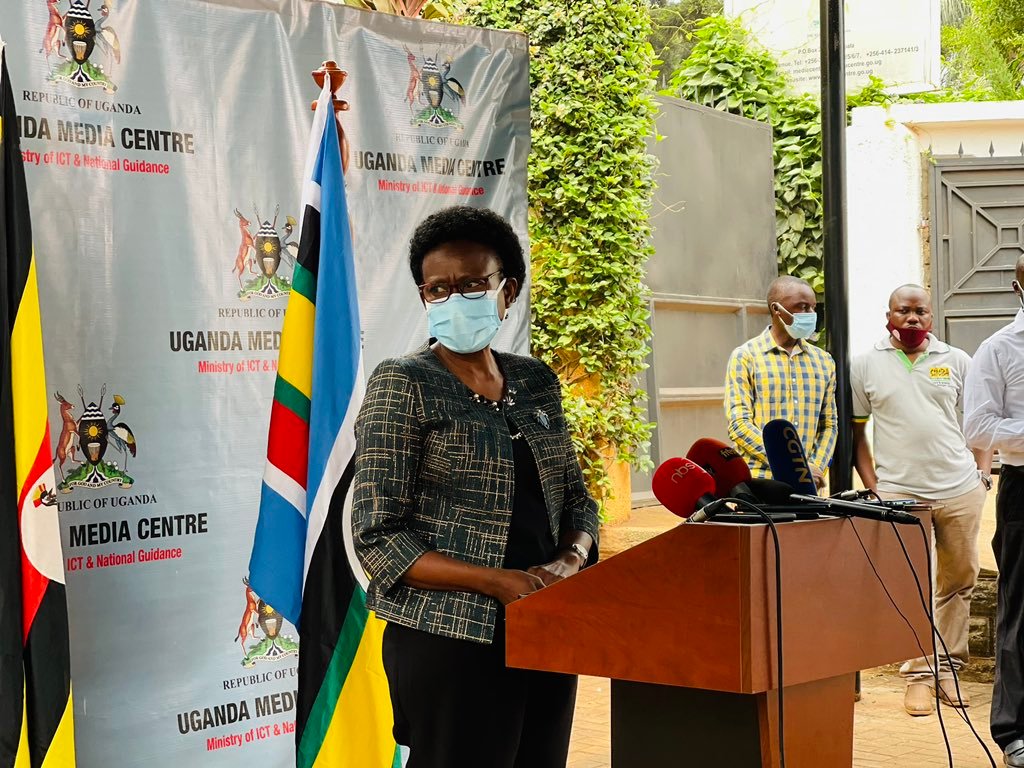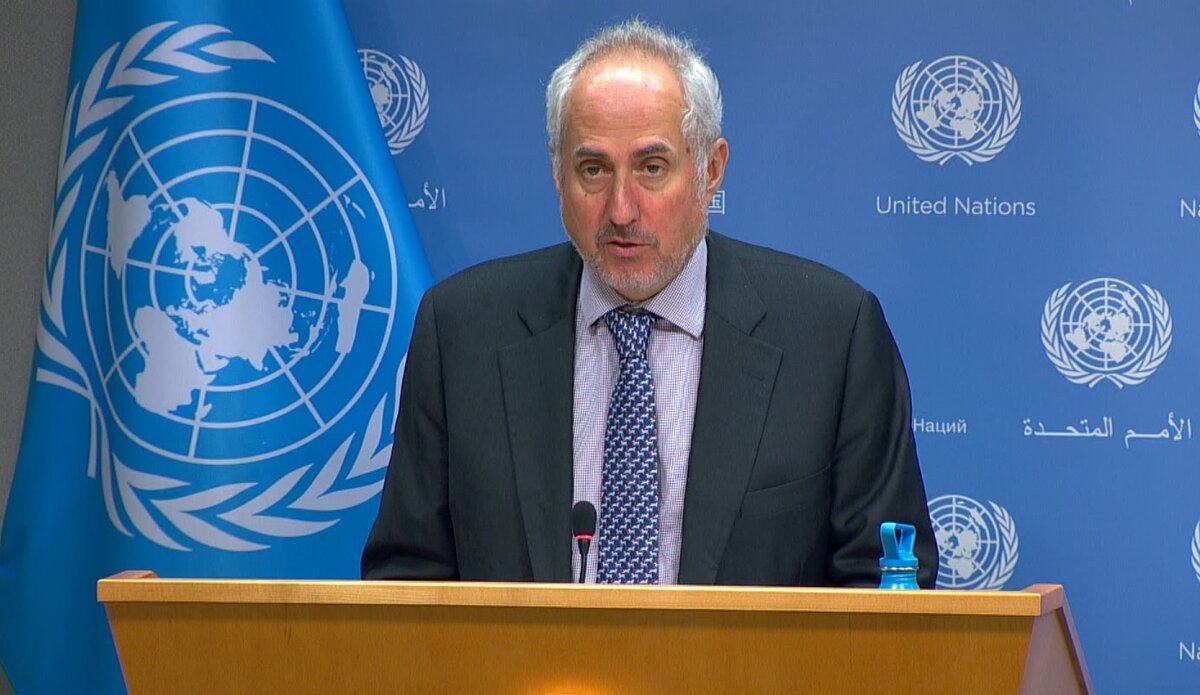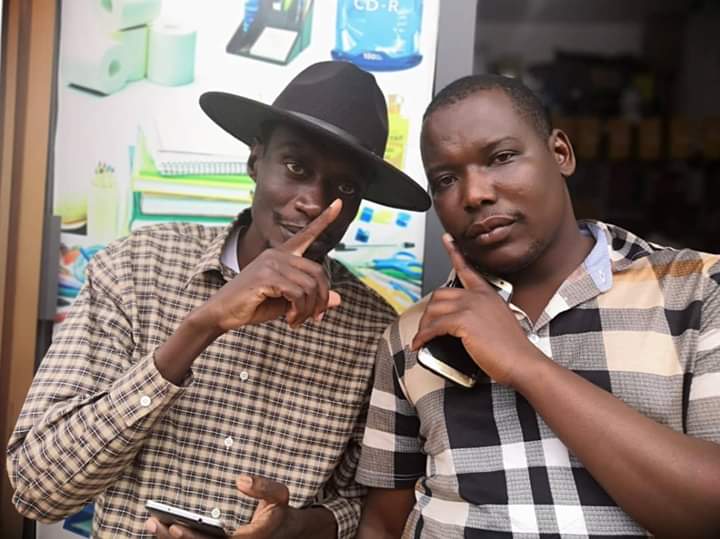Uganda’s Health Minister Dr Jane Ruth Aceng on Thursday revealed government plans to vaccinate the population against the Coronavirus pandemic.
Aceng said this while giving an update on the country’s response to the coronavirus saying the impact of COVID-19 vaccines on the pandemic will depend on several factors which include the effectiveness of the vaccines and how many people get vaccinated.
“It’s not yet known if COVID-19 vaccines will provide long-term protection. More research is needed to answer this question. However, it’s encouraging that available data suggest that most people who recover from COVID- 19 develop an immune response that provides at least some period of protection,” Aceng said.
It is just over 10 months since the first COVID-19 case was imported into Uganda and since September 2020 the outbreak has evolved and transitioned to Phase 4. This is a phase of diffuse and sustained intense community transmission with multiple clusters in some districts and population subgroups.
To date, the cumulative number of COVID- 19 confirmed cases stands at 39,911, reported and validated COVID-19 deaths at 328 and recoveries at 14,470. The breakdown of the cases is as follows: Alerts; 20,654 (51.8%), contacts; 13,104 (32.8%), outbound travelers; 2,784 (7.0%), health workers; 1,890 (4.7%) and returnees at 688 (1.7%). Kampala continues to report the highest number of cases and deaths in the country (contributing 48% of the national figure for both cases and deaths). Currently, the following regions are the main transmission hotspots: West Nile and Elgon sub-regions.
Explaining the recent drop in cases, Aceng, “Regardless of the reliability of the biological and social explanations, it’s important that Ugandans appreciate that the pandemic comes in waves, and the peak period between November 2020 and early January 2021 represented the close of the 1 st wave of the pandemic. The falling numbers therefore represent a punctuation consistent with our seasonal variation patterns, that is likely to be followed by emergence of what we shall consider as the 2nd wave.”
VACCINE
The media has been awash with reports that government had cancelled the process of procuring the Oxford-AstraZeneca coronavirus vaccine after some studies have shown disappointing results, especially against a new COVID-19 strain.
However, Aceng revealed that the plan to purchase vaccines from AstraZeneca is still on saying, “18million doses initially ordered for, only 400,000 doses will be procured at a cost of $4 dollars per dose.”
The WHO Strategic Advisory Group of Experts on Immunization (SAGE) has issued interim recommendations for use of the Oxford/AstraZeneca COVID-19 vaccine (AZD1222).
“Each individual requires 2 doses of the vaccine, making the cost of the vaccine $8 per person. This is without the costs of freight and costs of deployment within the country which will cost an additional $3 (storage, distribution and vaccination) The small procurements will give our scientists time to continue evaluating the safety and effectiveness of the vaccines,” Aceng added.
Explaining why Uganda decided to go with AstraZeneca’s jabs, Aceng said the country’s ability to meet it’s storage requirements informed the decision.
“However, after careful scientific and logistical considerations, Uganda opted for the AstraZeneca vaccine from Serum Institute of India, because the vaccine has been tested for over a century and the vaccine fridges in our health facilities meet the storage temperature requirements of 20 -80 C. It is for the same reason that the Chinese vaccine is being considered for use in Uganda. This is contrary to newer technologies (mRNA vaccines) which require ultra-cold chain (-80 degrees) that is difficult to meet in our setting,” she said.
he added, “All travelers, albeit being vaccinated against COVID-19 will still require a COVID-19 test prior to travel and must follow COVID-19 SOPs at all times. Uganda plans to vaccinate 60% of its population in three phases to attain herd immunity. Each phase will cover 20% of the population.”
The priority groups for phase 1 will include:
- Health workers estimated at 150,000
- Security personnel; estimated at 250,000
- Teachers among other essential social service providers; 550,000
- Persons from the age 50 years and above, estimated at 3,348500
- Persons with underlying health conditions aged below 50 years, estimated at 500,000
After vaccinating the above priority populations, the ministry will then expand the vaccination program to age groups below 50 years in a staggered manner until 60% of the Ugandan population is covered.
BELOW IS THE FULL STATEMENT
1 Ith February 2021 – The Ministry of Health would like to update the general public on the status of the COVID-19 Pandemic in Uganda and the progress we have made so far.
First, allow me to wish all of you a very Happy New Year and appreciate you for participating in the recently concluded general elections. In a special way, I would like to congratulate all the candidates who were successfully elected into their respective leadership areas.
I would like to take this opportunity to pay tribute to the 328 Ugandans who have succumbed to COVID-19. May their souls rest in eternal peace, Amen.
OVERVIEW OF COVID-19 IN UGANDA
It is just over 10 months since the first COVID-19 case was imported into Uganda and since September 2020 the outbreak has evolved and transitioned to Phase 4. This is a phase of diffuse and sustained intense community transmission with multiple clusters in some districts and population subgroups.
To date, the cumulative number of COVID- 19 confirmed cases stands at 39,911, reported and validated COVID-19 deaths at 328 and recoveries at 14,470. The breakdown of the cases is as follows: Alerts; 20,654 (51.8%), contacts; 13,104 (32.8%), outbound travelers; 2,784 (7.0%), health workers; 1,890 (4.7%) and returnees at 688 (1.7%).
Kampala continues to report the highest number of cases and deaths in the country (contributing 48% of the national figure for both cases and deaths). Currently, the following regions are the main transmission hotspots: West Nile and Elgon sub-regions.
The month of January and February continue to reflect a drop in the number of confirmed cases. We have also observed a drop in the samples collected to less than 50% (November 2020- 77,910, December 2020- 121,178, January 2021- 81,341) of what we expect
in order to have a sufficient surveillance system, more still, just under half of the samples collected in the last one month reflect travelers who are outbound from Uganda and require a negative PCR test for travel.
Why the drop in the number of confirmed COVID-19 cases?
The media has been awash with concern over (and assumptions to explain) the falling numbers of COVID-19 in Uganda. It is important, first to note that this phenomenon, characterizing peaking of an epidemic, is not unique to Uganda and that our scientists accurately predicted its occurrence after January 2021.
Regardless of the reliability of the biological and social explanations, it’s important that Ugandans appreciate that the pandemic comes in waves, and the peak period between November 2020 and early January 2021 represented the close of the 1 st wave of the pandemic. The falling numbers therefore represent a punctuation consistent with our seasonal variation patterns, that is likely to be followed by emergence of what we shall consider as the 2nd wave. This may initially occur as isolated surges in different communities and populations groups, only to later merge into another singular wave, nationally. Uganda, just like other countries globally, is therefore not yet safe.
UPDATE ON THE ROLL OUT OF HOME BASED CARE
Uganda commenced home-based care of COVID-19 patients in November 2020. Home-based care was recommended for newly confirmed or suspected COVID-19 patient with no symptoms or mild illness, no known risk of developing complications or progressing to severe COVID-19 disease or any patient discharged from the treatment center for home care.
So far, 22 districts are implementing home-based care for COVID-19 patients and these include: Kampala, Mukono, Kamuli, Adjumani, Koboko, Lamwo, Lira, Arua, Yumbe, Moyo, Kalangala, Kasese, Obongi,
Bukomasimbi, Madi- Okollo, Bushenyi, Mbale, Kiryandongo, Kabarole, Isingiro, Kamwenge and Kyegegwa.
UPDATE ON COVID-19 VACCINE
Several different types of potential vaccines for COVID-19 are in development, and a good number are ready for evaluation by WHO and or approval. Different technologies are being used by the scientists to develop the vaccines, giving the different types of vaccines which include:
- Inactivated or weakened virus vaccines, which use a form of the virus that has been inactivated or weakened so it doesn’t cause disease, but still generates an immune response.
- Protein-based vaccines, which use harmless fragments of proteins or protein shells that mimic the COVID-19 virus to safely generate an immune response.
- Viral vector vaccines, which use a virus that has been genetically engineered so that it can’t cause disease, but produces coronavirus proteins to safely generate an immune response.
- RNA and DNA vaccines, a new approach that uses genetically engineered RNA or DNA to generate a protein that itself safely prompts an immune response.
The impact of COVID-19 vaccines on the pandemic will depend on several factors which include the effectiveness of the vaccines and how many people get vaccinated.
It’s not yet known if COVID-19 vaccines will provide long-term protection. More research is needed to answer this question. However, it’s encouraging that available data suggest that most people who recover from COVID- 19 develop an immune response that provides at least some period of protection
Pricing for Vaccines
The COVID-19 Vaccine Market Dashboard gives transparency and visibility to information on the COVID-19 vaccine market. The tool gives an overview of the vaccines in the pipeline, their development stage and platforms. It also provides information on the price points. Currently the range of reported vaccines prices per dose varies from $2.19 – $44
Cost of the AstraZeneca Vaccine
All countries have been guided by Gavi to use a working price of USD 7$ per dose as the planning figure. Full vaccination with AstraZeneca vaccine requires two (02) doses separated by 28 days apart, which amounts to USD 14$ per person.
The international freight, customs clearance, handling costs in country and distribution to districts costs USD 3$ for full dose. It is for this reason that the total cost of vaccine per person is estimated at USD 17$.
However, we have observed on the COVID-19 Vaccine Market Dashboard which is updated on a daily, differences in the prices offered to countries by the Serum Institute. These prices vary between USD $3 to USD $10. The final payment for vaccines will be based on the invoice value provided to the Uganda. The AstraZeneca vaccine is expected to get approval for use by WHO on 15th February, 2021.
On Monday 25th January, 2021, Cabinet directed the Ministry of Health to place an order for COVID-19 vaccines to cover vulnerable people estimated to be 20% of Ugandan population (26.7million people). Accordingly, the Ministry of Health working together with the National Medical Stores (NMS) placed an order with the Serum
Institute of India for 18,000,000 doses of the AstraZeneca vaccines to commence Phase 1 of the vaccination exercise against COVID-19.
Ministry of Health used the working cost provided by GAVI to calculate the estimates for the 18mi11ion doses. Two doses would be $14 dollars and the $3 is the cost of freight, storage, distribution and the final administration of the vaccine to the beneficiary, making it $17. I encourage Ugandans to visit the COVID19 Vaccine Market Dash board to acquaint themselves with the varied costs of the vaccine molecules from the different countries. Take note too, that the rate of production cannot meet the demands of the various countries globally, hence the long queues and delayed supplies
The possible sources of vaccines that Uganda can access are as follows:
- Direct purchase of the AstraZeneca vaccines from Serum Institute of India. Of the 18million doses initially ordered for, only 400,000 doses will be procured at a cost of $4 dollars per dose. Each individual requires 2 doses of the vaccine, making the cost of the vaccine $8 per person. This is without the costs of freight and costs of deployment within the country which will cost an additional $3 (storage, distribution and vaccination) The small procurements will give our scientists time to continue evaluating the safety and effectiveness of the vaccines
- Donations under the Covax facility. Uganda submitted a request of additional 18 million doses to cover another 20% of the population (totaling to 40%).
- Covax facility has communicated a tentative allocation of 3,552,000 doses of the AstraZeneca vaccine to Uganda.
- This allocation will arrive on a quarterly basis in the course of 2021;
- 35-40% (1,420,800 doses) in Q I (January to March) and 60-
65% (2, 130,000 doses) will be available in Q2 (April to June).
- The expected date of delivery to Uganda is yet to be communicated.
- Uganda may receive donations and purchase COVID 19 vaccines from The People’s Republic of China. Follow up and negotiations are still ongoing. The costs of the vaccine on the dash board is still too high at $44
- Another window is through the African Union subject to a funding mechanism being realized. African Union has secured 600 million doses of the COVID-19 vaccine (Pfizer, AstraZeneca and Johnson & Johnson) for the African Continent. Under this arrangement, Uganda has been allocated 9,150, 894 doses (Johnson and Johnson- 4,067,064, AstraZeneca- 3,389,220,
Pfizer- 1,694,610)
- Why AstraZeneca Vaccine?
There are many vaccines molecules currently undergoing research.
However, after careful scientific and logistical considerations,
Uganda opted for the AstraZeneca vaccine from Serum Institute of India, because the vaccine has been tested for over a century and the vaccine fridges in our health facilities meet the storage temperature requirements of 20 -80 C. It is for the same reason that the Chinese vaccine is being considered for use in Uganda. This is contrary to newer technologies (mRNA vaccines) which require ultra-cold chain (-80 degrees) that is difficult to meet in our setting.
All travelers, albeit being vaccinated against COVID-19 will still require a COVID-19 test prior to travel and must follow COVID-19 SOPs at all times.
Uganda plans to vaccinate 60% of its population in three phases to attain herd immunity. Each phase will cover 20% of the population
The priority groups for phase 1 will include:
- Health workers estimated at 150,000
- Security personnel; estimated at 250,000
- Teachers among other essential social service providers; 550,000
- Persons from the age 50 years and above, estimated at 3,348500
- Persons with underlying health conditions aged below 50 years, estimated at 500,000
After vaccinating the above priority populations, the ministry will then expand the vaccination program to age groups below 50 years in a staggered manner until 60% of the Ugandan population is covered.
COVID-19 variants
There are three particular variants of concern that have been reported. One was identified in the United Kingdom, another in South Africa and in Brazil. They have one change in common, and that is the N501Y mutation in the spike protein. However, the three viruses are different but are all associated with an increase in the number of cases in these countries.
The viruses have been observed to spread faster and are more infectious. However, they do not seem to cause more severe illness or a higher death rate. They appear to behave as the previous viruses were behaving and cause a similar kind of disease.
Studies are however, ongoing in laboratories around the world to confirm whether these variants do not respond to the vaccines. There are now reports that AstraZeneca vaccine may not be affective against the South African variant. Scientists may therefore change the composition of the antigens and the vaccines to address this or use alternative vaccines.
In Uganda, our scientists are continuing to look at the viruses we have and although the above three variants have not been seen, the viruses in Uganda are also showing some changes.
What is important is, to ensure we reduce transmission by following the SOPS.
EXPANDING LABORATORY CAPACITY
The Ministry of Health continues to accredit and expand the laboratory testing capacity for COVID 19 and other public health emergencies in the country. This is intended to increase the number of testing laboratories providing services to the population and the visitors.
The total number of laboratories capable of testing for COVID 19 stands at 21. These laboratories are;
- i) Uganda Virus Research Institute (UVRI) ii) National Public Health Laboratory, Butabika (NPHL) iii) Infectious Disease Institute Laboratory (IDI) iv) Makerere University Laboratory
- v) Tororo Mobile Laboratory vi) Adjumani Mobile Laboratory vii) Mutukula Mobile Laboratory viii) MildMay Laboratory ix) Joint Clinical Research Centre (JCRC)
- x) Uganda Cancer Institute xi) MSF EpiCenter, Mbarara xii) Rakai Health Sciences xiii) Lancet laboratories – Private xiv) Medipal International Hospital – Private MBN – Private xvi) Test and Fly Laboratory – Private xvii) IOM Laboratories – Private xviii) ANCA Biotech – Private xix) Case Clinic – Private
- xx) Test Xpress Laboratories — Private xxi) ACTG Laboratories – Private
ROLL OUT OF COVID-19 RAPID DIAGNOSTIC TESTS (RDTS)
In a move to bring testing services closer to the population, the World Health Organization (WHO) on the 10th November 2020, announced an expression of interest concerning monitored implementation of SARS-CoV-2 antigen detecting rapid diagnostic tests (RDTs) in lowand middle-income countries to better understand field performance, acceptability, feasibility, cost-effectiveness and the impact of these tests when used as part of an algorithm in resource limited settings during the COVID-19 crisis.
The antigen RDTs recommended for roll out in the country are: Panbio Abbott and SD Biosensor antigen RDTs.
How does testing with the antigen RDT work?
A patient must present with symptoms of COVID- 19.
He or she is then tested using the antigen RDT. If found positive, the patient is referred to the COVID-19 treatment unit for immediate management and a second sample is taken for confirmatory PCR test. If a patient is negative on the antigen RDT, the health workers should practice enhanced Infection, Prevention and Control (IPC) measures while treating the patient as high risk. A second sample is taken for confirmatory PCR test.
In a phase-based approach, Uganda has successfully rolled out the use of RDTs in thirty (30) districts covering 105 health facilities. These districts are: Wakiso, Gulu, Pader, Arua, Adjumani, Obongi, Moyo, Kitgum, Lamwo, Hoima, Kiryandongo, Masaka, Kyotera, Buikwe, Jinja, Soroti, Lira, Manafwa, Namisindwa, Tororo, Busia, Mbale, Kapchorwa, Mbarara, Kabale, Kasese, Kabarole, Moroto, Mubende and Luwero.
Samples tested using the COVID-19 RDTs are also referred to PCR labs for confirmatory tests.
Data collection is ongoing from all sites for analysis to inform the use of these RDTs.
PUBLIC HEALTH RISK COMMUNICATION
The Ministry of Health is cognizant of the current state of affairs in the country. We have prioritized a number of areas that require public health education, and some of these include: safe schooling, vaccine acceptance and demand creation, homebased care, nutrition education, as well as unpacking the preventive measures in a manner that resonates to the current situation. We shall endeavor to distribute more educative materials to all key sectors like schools, to ensure that people are from time to time updated with key information on COVID- 19.
The Ministry will train and orient media practitioners between 15th February to 19th February 2021. This training is intended to equip the health journalists with information on vaccines, to enable them provide correct information to members of the public.
Further, the Ministry of Health working with partners will launch a new COVID-19 campaign on how we can work, live, and interact safely given the normalcy of most businesses and activities in the country. This campaign restores hope among people, and it reenergizes them to continue practicing the recommended SOPs. The campaign will run on major Televisions and Radio Stations across the country starting from 14th February for a period of at least three months.
UGANDA’S PREPAREDNESS TO HANDLE THE THREAT OF EBOLA
FROM THE DEMOCRATIC REPUBLIC OF CONGO
A new case of the Ebola Virus Disease (EVD) was detected on February 01 st 2021 in Biena, in the territory of Butembo in Democratic Republic of Congo (DRC). The case is a farmer and the wife of an EVD survivor who presented with signs and symptoms similar to the disease. Samples were analyzed and she tested positive for EVD.
As you are all aware, Uganda shares a border, at Bwera with the Eastern side of Democratic Republic of Congo. The distance is approximately 72.6km, thereby putting Uganda at high risk of importing EVD.
In light of this, the country has heightened surveillance and preparedness and the following activities are being undertaken to prevent the importation of EVD into Uganda.
- Intensified risk communication
- Re-activation of the Ebola Virus Disease District Task Forces
- Dispatch of the Rapid Response Teams to Kasese district.
CONCLUSION
I appeal to the general population to continue following the Standard Operating Procedures in order to prevent COVID-19 infections. It is your responsibility to protect yourself and your loved ones. This will enable us sustain the strides achieved as a nation.
COVID-19 is real, it is dangerous, spreads fast and it kills.
Stay safe, Stay alive.
Thank you for listening and God bless
Dr. Jane Ruth Aceng Ocero
Minister for Health 11th February 2021

















